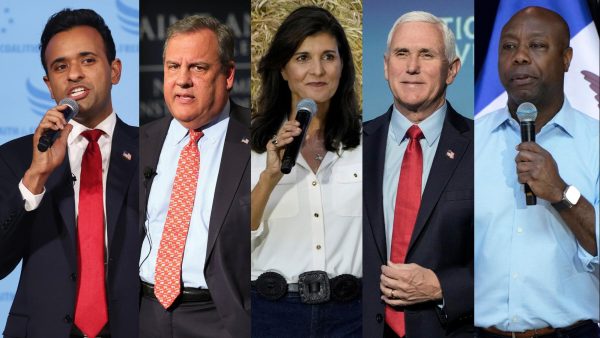Does Biting the Bullet Take Brute Force?
December 22, 2017
The Virginia Tech Shooting in 2007. The Newtown Shooting in 2012. The Pulse Orlando Nightclub shooting in 2016—hundreds of lives lost because someone was behind the bullet. The United States is not a stranger to dealing with mass shootings, as it holds the title of having the highest number of guns per capita in the world with 270,000,000 guns in total. When faced with the fact that almost one in five Americans own a gun, the dark issue of gun-related casualties comes to light. With 126 mass shootings between Jan. 2000 and July 2014, proponents and opponents of gun control scramble to find a way to mitigate the issue of mass shootings in America. Unfortunately, a country centered around the value the unity is divided on the issue surrounding gun control.
The aftermath of one of the worst mass shootings in America history, the Las Vegas shooting, left an emotional scar that raised the limit of the number of people that can be killed by a certain individual. That day, more than fifty people lost their lives and over five hundred were injured by the acts of one man with over forty-seven guns. While the stories of the victims will be remembered, justice can only be served through action. Many believe that tightening gun laws will prevent those like the heinous shooter of the Las Vegas shooting, Stephen Paddock, from possessing firearms. Even though restricting gun privileges seems probable in theory, it is not an end-all solution to gun violence. “The United States needs to focus on treating those at risk for committing gun-related crimes, not passing more laws. I think that what has happened recently proves that more laws will not be effective,” says Brandon Ying ‘19. In reality, it is a “quick fix” to an issue that requires more than passing laws to prevent. As the old adage goes, “if you outlaw guns, only outlaws will have guns.”
A law is not able to completely eradicate the number of Americans who possess guns and are capable of committing violent crimes. People can modify the guns that they already possess to increase the firing rate of the weapon. According to Kellie Weeks, owner of the Georgia Gun Store in Gainesville, Georgia, guns are modular. Most gun stores offer a “bump stock,” an accessory that transforms a semi-automatic rifle into a weapon capable of firing hundreds of rounds a minute. A “trigger crank” attaches to the trigger guard, and the shooter then rotates the cranks, which pulls the trigger about 3x per rotation. Both of these modifiers are legal, and modifying a weapon without scrutiny only costs from about fifty to one hundred dollars. These workaround accessories erase the effectiveness of laws tightening gun possession.
Furthermore, even unlicensed individuals can find access to guns under gun laws. What if one does not have the proper credentials to own guns? How can they possibly purchase a weapon? This exception is referred to as the “gun show loophole”. Even if states require all licensed dealers to go through background checks, firearms can be sold by private parties without these credentials. Anyone could potentially purchase a gun at these events, regardless of their background or criminal record. In fact, Harvard’s Dr. Deborah Azrael estimates that about 40 percent of people who obtain a firearm do not undergo a background check before doing so. “Loopholes are one of the biggest causes of mass shootings,” notes Audrika Chattaraj ’21. “Even when people who want guns are restricted from legally owning them, they will always find a way to buy them under the table.”
While there is no way to completely eradicate every American who poses danger to society, a reduction in gun deaths does not need to take new legislation or a complete revolution. It is possible to save lives by reforming potential killers with therapy and striving to close the “gun show loophole” throughout cities with higher crime rates and corruption. In order to close the gun show loophole, the United States should look towards bolstering governmental organizations. One prime example is the National Instant Criminal Background Check System, or the NICS. This organization supports efforts to specifically target gun shows and swap meets. In fact, The Justice Department currently allows records generated by the NICS to be kept for 90 days, enforcing stricter standards on those interested in buying guns [7]. No matter how many laws are imposed or how severe the consequences are, the United States should place closing the gun show loophole as their top priority.
People find ways around gun laws, and the only solution lies in improving the lives of those who do. Of course, criminals should be punished and take responsibility for their actions, but risky behavior flourishes under restrictive laws and can only be eliminated with direct treatment. One step at a time, the United States should look towards improving current lives in order to save future lives.





